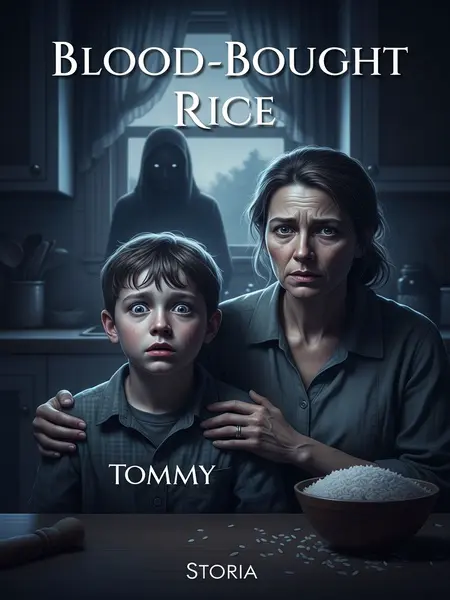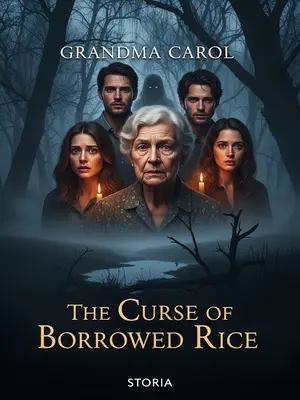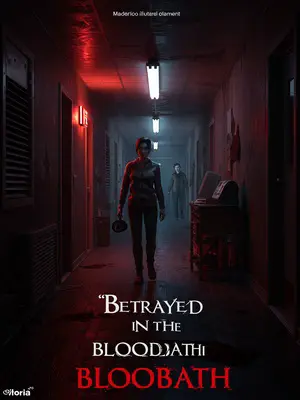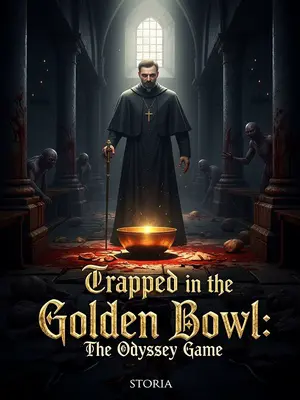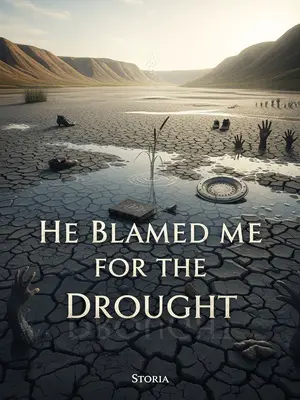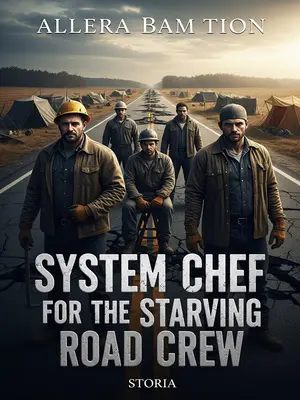Chapter 1: Rice on the Doorstep
Ever heard of something called “blood-bought rice”?
It’s the sort of question that sounds like a tall tale—something you’d hear at a sleepover or at a county fair, maybe told in a shaky voice when the wind rattles the windows just right. But in Maple Heights, stories like that had a way of coming true, especially when the sky ran dry and hope felt thin as watered-down soup.
I was eight the summer the drought hit Maple Heights.
It wasn’t just any drought—it was the kind that made the dirt split and curl, the kind that left nothing in the creekbed but stones and dust. Folks prayed harder at church, and every neighbor’s voice carried a tremble, even when they tried to cover it up with a smile. My stomach growled all the time. Sometimes I’d just sit there, feeling the emptiness in my belly, and even the air felt hungry.
That third night, after three days without a bite to eat… someone left five scoops of rice on our front porch.
I remember the hush settling over twilight, cicadas buzzing louder than ever, and my little sister wouldn’t let go of my hand. The rice was laid out neat as could be on a piece of brown paper, like something left on an altar. It looked almost too white, too clean, in all that dust.
My grandma kept saying the Lord had answered our prayers, and she rushed to gather the rice to cook it up right away.
She was crying and laughing all at once, hugging me close—then she was off, bustling into the kitchen. The smell of rice boiling filled the house—warm and sweet, like hope itself. For a moment, it felt like maybe, just maybe, everything would be alright.
It wasn’t until we were halfway through eating that someone finally asked where the rice had come from.
It was like someone snapped their fingers and broke a spell. My spoon froze halfway to my mouth, and we all looked around at each other. My little sister stared, eyes big as saucers, and even my mom set her bowl down, frowning a little.
After my grandma’s explanation, there was a moment of silence, and then my grandpa stomped so hard the floorboards rattled and said:
“How could this be the Lord’s doing? This is clearly blood-bought rice! Five people, five scoops—it’s buying the lives of our whole family!”
He stomped so hard the floorboards rattled, his voice echoing through our little kitchen. The room seemed to grow colder, like someone just opened a window to the dead of winter.
"Earl, how could this rice be blood-bought rice? Don’t scare me," my grandma said, her eyes big as saucers.
Her hands shook as she wiped them on her apron, then froze. I saw the color drain from her cheeks. She looked at my grandpa like she wanted him to laugh it off. But he just stared at the table, jaw clenched.
My grandpa’s forehead veins bulged. “That thing—whenever disaster hits, it brings rice to buy meat. Scatters it at the doorstep, just waiting for someone to pick it up. Thirty years ago, how many people did it eat alive with this trick—have you forgotten?”
He jabbed a finger at the window, like he expected to see it peeking in. His words hung heavy in the air, and it felt like time itself was holding its breath.
Mom saw Grandma shaking and tried to reassure her: “What if someone was just being kind and left us some food?”
She reached over, squeezing Grandma’s hand, trying to smile. Her voice was gentle, but I could hear the worry underneath, like a creek running under thin ice.
My grandpa tapped his old pipe, his beard bristling. “I spent all day going up and down Maple Heights and even past the county line—couldn’t get a single grain. Who would be so generous as to give us rice?” He pointed to the storm cellar beneath his feet. “And besides, who else but that thing would know there are five people in our family? Daniel is hiding in the cellar—nobody in town knows.”
He spoke low, almost whispering, glancing at the cellar door, like he was afraid someone might be listening. The mention of Daniel made everyone tense up, and the air felt thick with secrets.
Daniel is my father. That’s something most folks in town didn’t know.
A few months back, after a fight over crop rent, he got into it with the mayor’s son and split his head open. The mayor came back at him, broke my dad’s leg, and swore he’d kill him if he ever showed his face again. Grandpa told everyone Dad had gone to recover at an uncle’s place in Toledo, but truth was, he’d been hiding in our cellar the whole time.
The story had become almost a family legend—something we only whispered about. I remembered Dad gritting his teeth through the pain, and how Mom would sneak down with food when no one was looking. The cellar was cold and damp, but safer than facing the mayor’s wrath. At least down there, he could heal.
My grandma, crying, asked, “Earl, does that thing really send rice based on the number of people?”
Her voice was thin and wavering, twisting her apron in her hands. She looked smaller than usual, like all the years had caught up with her at once.
My grandpa replied, “It not only counts the number of people, it gives rice according to how much meat each person has. Mabel, think carefully—were there four big scoops and one small scoop?”
He leaned forward, his eyes locking onto hers, like the answer might save us. The way he said ‘meat’ made my skin crawl, and I saw my little sister inch closer to Mom.
Grandma just froze, like she’d remembered something awful. Her hands started trembling so hard she couldn’t hold on. The bowl slipped from her hands and shattered on the floor.
